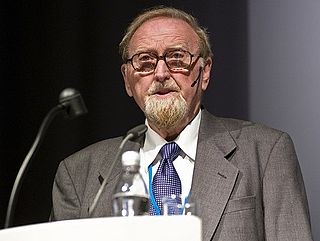A Quote by Martin Feldstein
First, I think the science of monetary economics has clearly gotten better.
Related Quotes
If you look through the century, certain things have gotten better and certain things have gotten worse. I wouldn't say overall that things have gotten better. I think you could say things have gotten worse, but I don't think you could say that things have gotten better. Overall. You can't say that.
I've never changed my approach to acting. I've always felt like I've gotten better. I think that all of us can get better. I feel like, in my acting, I'm better than I was three pictures ago. I think about it. I'm a slow study. It takes me a long time to grasp the material, in order to perform it. But when I come to the set, on the first day, I know the whole movie. That's why I have to start early.
How should the best parts of psychology and economics interrelate in an enlightened economist's mind?... I think that these behavioral economics...or economists are probably the ones that are bending them in the correct direction. I don't think it's going to be that hard to bend economics a little to accommodate what's right in psychology.



































